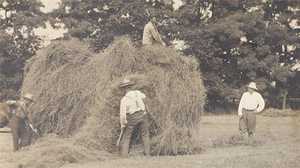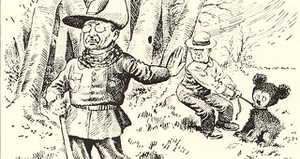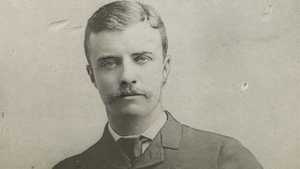TR's Career
Historian John Blum comments on Theodore Roosevelt's career.

Early Political Career
In 1880, when Theodore Roosevelt graduated from Harvard College, gentlemen, men of good birth and competence, money, simply did not go into politics as a career. Politics was for muckers. Therefore, Roosevelt's decision surprised, even offended, other New York or Boston patricians. But he went into politics, if initially perhaps only to see what it tasted like, basically because he wanted to govern. Roosevelt loved power.
Roosevelt's decision to enter politics was not a wide-open one. When he made that decision, people of good family who lived in New York City didn't dream of being Democrats. The Union had just been saved in the Civil War and the Republican Party took credit for that victory.
Further, the Democratic Party was the party of Tammany Hall, with Tweed and corruption as its reputation, the party of rebels, of, Irish Americans, who in New York City were looked down upon by the well-to-do, and of tradespeople. So Roosevelt never thought twice. He entered the Republican Party.
Well, Roosevelt was sort of a phenomenon in the New York State assembly. He wore thick spectacles and he had a rather high-pitched, patrician intonation, not exactly a Harvard accent, but could be mistaken for that. So when that squeaky voice began to make moralistic statements on the floor of the New York assembly, which was filled with country lawyers, morticians, saloon keepers, and the like, the newspaper men made a lot of it and they were the media then. And Roosevelt talked a lot. He was a surprise and he was vigorous.
Roosevelt had a knack for self-advertisement. He would have been a great success on Madison Avenue. He was his own PR man, and partly it was because in spite of himself, he dramatized causes. He dramatized them in the way he talked and the way he walked and the way he rode a horse, by the strenuousness that he brought to everyday life.
Roosevelt also proved to be superlative in his handling of the press. In the beginning he had to learn, of course, but he made good copy. Later, when he had relatively high office, he had a knack for picking a journalist and giving him private information, a scoop, in effect, which that journalist could then use to make excellent copy for the readers of America. And he always tended to pick a journalist, ah, working for newspapers that had a substantial circulation in useful places.







